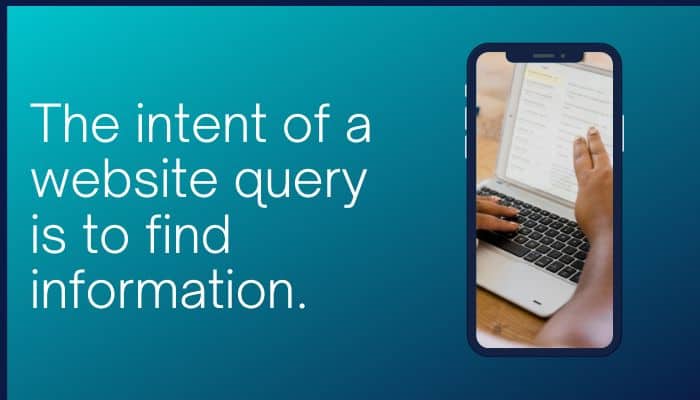Answer – True
The argument “the intent of a website query is to find information” is “True”. When you do a website query, you are essentially searching for a certain piece of information, answer, or content on that particular subject. You can do this by typing keywords or phrases into a search engine, a website’s search bar, or other online platforms. This can be said for a query on a website as well. Let’s understand what this means.
What does a website query mean?
A query is your request for certain details or content made using a search engine or a website’s search function. It’s the text or group of keywords that you enter into a search box or bar in order to find answers that are related to what you’re looking for.
The search engine or website’s search system analyses your input when you start a query and generates a list of results that are comparable to your entered keywords. The results you receive often include links to web pages, articles, videos, photographs, or other sorts of information that the search engines have found to be relevant to your query.
For instance, you can type “history of Indian space exploration” into the search box of a search engine if you’re seeking information on the past of space explorations in India.
After analyzing your question, the search engine will make use of its indexing of web pages to find relevant results that match your search. A collection of links to websites, papers, and other content about the background of space exploration will be shown on the results page.
In the context of problem-solving, website queries are similar to virtual assistants. You can search the internet for answers when you are having trouble related to your personal projects, your health, or something related to technology.
You can also find answers from experts, help from community forums, and even professional troubleshooting tutorials by just entering the exact questions. The openness of knowledge gives you the freedom to solve problems on your own and develop new skills.
More about Queries and Search Engine
Queries can vary in complexity. They can be straightforward, such as looking for a single word or just one phrase, or they can be more complex, using many different kinds of keywords and phrases to focus the results on a particular subject or question.
Queries are frequently used by people to learn more about topics that they are interested in or to find solutions to challenging questions.
The ability of search engines to properly understand not just the specific words in a query but also its context and intent has been improving throughout time. This helps them to return more precise and relevant results, despite the fact that the query does not exactly match what is written on websites.
Voice searches have grown in popularity in recent years as well. This allows you to ask your questions rather than typing them in manually. This has resulted in advances in natural language processing and understanding, allowing search engines to analyze conversational searches and offer useful responses.
A query might be used to filter and obtain specific content from a database on websites that provide search functions. On an e-commerce website, for example, you can enter a query such as “men’s summer shirts under Rs. 5000” to find a list of summer shirts or products that meet the requirements.
It’s worth noting that the efficiency of a website query depends not only on your language but also on the quality of search engine algorithms. Search engines use a wide range of techniques in order to provide the most relevant and accurate results to you.
These algorithms take into factors such as your current location, browsing history, and the website’s reputation. They also take into account keyword synonyms and variants, making sure that you get results that fit what you are looking for even if you did not use the identical word shown on certain pages.
Conclusion
“The intent of a website query is to find information” This statement is entirely true. When you conduct a website query, you’re essentially seeking specific information, answers, or content related to a particular subject. If you want to get an in-depth explanation for why this statement is true then read the article above.
